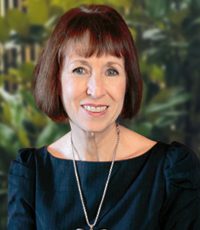Dear Colleagues, welcome to our 2021 end-of-autumn e-newsletter.
Significant news for TERN and other national research infrastructure projects this month is the announcement of the Expert Working Group for the 2021 Research Infrastructure Roadmap consultations. For those unfamiliar with national research infrastructure funding, the Australian Government put aside $4 billion for the period from 2018 to 2030 to support important pieces of national environmental research infrastructure and make sure Australian researchers can access them.
Every five years, a new Roadmap is created to identify the specific pieces of research infrastructure to be funded from the pool of money. The 2021 Roadmap will guide decisions on which national research infrastructures are funded from 2023 until 2028. So, the big questions are, which of the current national research infrastructure capabilities will be extended after 2022, and what will be new?
The 2021 Roadmap Expert Working Group was appointed on 14 May and members’ names are listed at the bottom of this Update, along with a few notes about each of them that comes from their public profiles. Interestingly, you will see that there are no Expert Working Group members with a direct link to the environment, climate, oceans, or high performance computing. This may be an early indication of priorities – indeed, in the April TERN Director’s Update for this newsletter, I commented that likely priorities for 2023-2028 research and research infrastructure investment are advanced manufacturing, energy and other areas focussed on impact through commercialisation, translation and support of jobs.
Virtual meetings have been scheduled with clusters of NCRIS projects and the Expert Working Group during June and TERN has a 30-minute slot to meet the Expert Working Group on 17 June. Members of the Expert Working Group have also been encouraged to visit sites in their state and have been provided with details of facilities/nodes by state. Currently, we are not aware of planned physical visits to any TERN site.
One of the planet’s most impactful stories about new knowledge and understanding arising from environmental monitoring is Charles David Keeling’s long term measurements of atmospheric carbon dioxide at Mauna Loa in Hawaii – it provided the link between human activities and a warming Earth. If you have a chance to meet the Expert Working Group, we hope you will use it to tell your own story about the research and policy value to Australia of TERN’s long-term environmental monitoring.
2021 national research infrastructure Expert Working Group members:
Dr Ziggy Switkowski AO (chair) (Melb)
|
|
Professor Liz Sonenberg (Melb) |
|
Dr Chris Roberts AO (Syd)
|
|
Professor Barbara Howlett (Melb)
|
|
Dr Michelle Perugini (Adel)
|
|
Ms Lauren Stafford (Perth)
|
|
Ex-officio members (all Canberra based) include: | |
Dr Cathy Foley AO PSM, Australia’s Chief Scientist |
|
Rob Heferen, Deputy Secretary Department of Education, Skills and Employment |
|
David Williamson, Deputy Secretary Department of Industry, Science, Energy and Resources |
|
I hope to see you at the TERN Lyn Beazley AO 2021 Ecosystem Observations Webinar Series on Wednesday 2 June – it is a panel discussion on a critical topic – ‘Resilience in Australia’s ecosystems’.
Until then, happy reading.
Beryl







